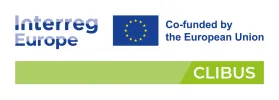CLIBUS Runway to carbon neutrality – Involvement of business communities in climate strategies

CLIBUS enables cities and regions to act as lighthouses, guiding SMEs in energy efficiency and climate actions.
Several regions and municipalities across the Europe are willing to achieve climate-neutrality earlier than 2050 and have established regional and local climate policies. To achieve carbon neutrality goals, cities and regions across, it is essential to improve the involvement of business sector and small and medium sized enterprises (SMEs) in the implementation of local and regional climate strategies. More dense collaboration with business communities, such as industrial districts, business parks, business development agencies and networks will provide new opportunities for GHG emission reductions and improve SMEs’ capabilities in contributing the green transition.
At the same time, the extending ESG reporting will provide additional information for decision-making for climate initiatives in business communities and SMEs.
The project CLIBUS is implemented in the framework of the Interreg Europe programme and co-financed by the European Union. The CLIBUS project partners are from Finland, Denmark, Greece, Netherlands and Ukraine. In Finland, LAB University of Applied Sciences works in close collaboration with the City of Imatra.
Project partners:
- LAB University of Applied Sciences, Finland
- City of Imatra, Finland
- Hillerød Municipality, Denmark
- Centre for Research and Technology Hellas (CERTH), Greece
- Region of Thessaly, Greece
- Executive Committee of the Rivne City Council, Ukraine
- Municipality of Emmen, Netherlands
Several regions and municipalities across the Europe are willing to achieve climate-neutrality earlier than 2050 and have established regional and local climate policies. To achieve carbon neutrality goals, cities and regions across, it is essential to improve the involvement of business sector and small and medium sized enterprises (SMEs) in the implementation of local and regional climate strategies. More dense collaboration with business communities, such as industrial districts, business parks, business development agencies and networks will provide new opportunities for GHG emission reductions and improve SMEs’ capabilities in contributing the green transition.
At the same time, the extending ESG reporting will provide additional information for decision-making for climate initiatives in business communities and SMEs.
The project CLIBUS is implemented in the framework of the Interreg Europe programme and co-financed by the European Union. The CLIBUS project partners are from Finland, Denmark, Greece, Netherlands and Ukraine. In Finland, LAB University of Applied Sciences works in close collaboration with the City of Imatra.
Project partners:
- LAB University of Applied Sciences, Finland
- City of Imatra, Finland
- Hillerød Municipality, Denmark
- Centre for Research and Technology Hellas (CERTH), Greece
- Region of Thessaly, Greece
- Executive Committee of the Rivne City Council, Ukraine
- Municipality of Emmen, Netherlands
Project period
-
Project state
On-going
Project area
International
Project funding
Interreg Europe 2021-2027

Read more about the project
LAB role
Lead partner
Unit
Technology
Project focus area
Multipurpose materials





